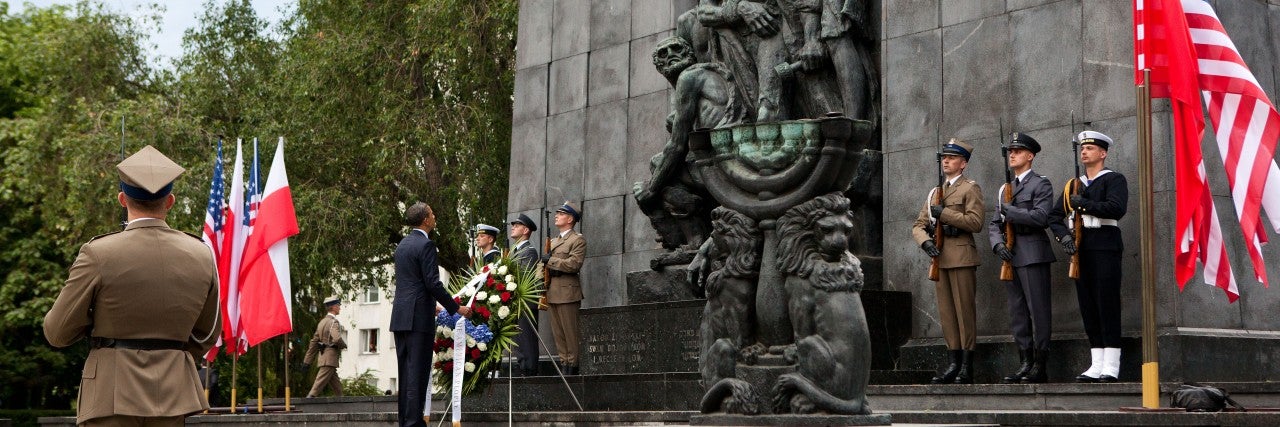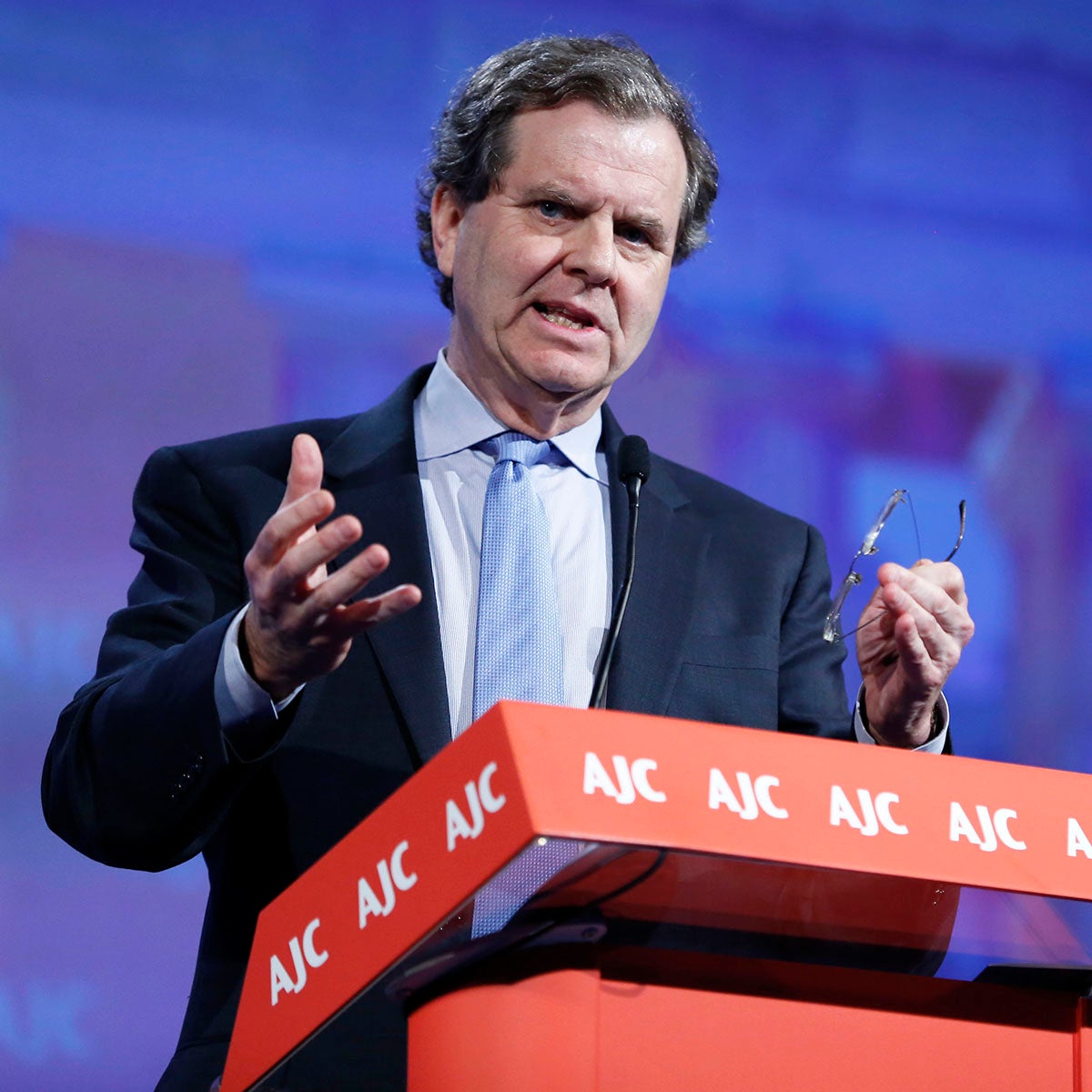March 12, 2017
I grew up in a home that was hardly pro-Polish. Poland was seen as a country where antisemitism was historically widespread and, at times, lethal.
So, how did I go from such a home to leading a global Jewish organization in the forefront of writing a new chapter in Polish-Jewish relations? And how would my family feel about the fact that in late March, more than 100 AJC leaders from across the United States will gather to celebrate the opening of our newest office – AJC Central Europe – in Poland’s capital?
As I try to understand my own evolution, there were four factors that shaped my shifting engagement with Poland.
The first was the Second World War. While I was born afterward, to this day the war has heavily shaped my outlook on life, both because my entire family was engulfed in it and because it became a universal morality tale, where the stark differences between the forces of good and evil – with endless typologies in between – did battle.
And how could one understand this cataclysm without, from the start, grasping Poland’s central place during those fateful years, 1939-1945? The more I studied the war, the more I began to appreciate that, though woefully outmatched by the Nazi German forces, Poland fought valiantly against the aggressor, far more so than many other European nations.
I also learned that even after defeat and occupation, Poland’s resistance movement, impressively detailed in Jan Karski’s “Story of A Secret State,” was unrivaled in Europe for its organization and effectiveness.
And speaking of Jan Karski, I came to idolize this wartime hero and underground courier for his efforts to alert a largely indifferent world to the fate of European Jews at the hands of the Third Reich.
I will also readily admit that, as a younger person, I couldn’t quite grasp the distinction between the formulations “Nazi German death camps in Poland” and “Polish death camps,” perhaps because of that earlier childhood association of Poland with antisemitism. On my first visit to a death camp, however, that difference became abundantly clear.
This is not to say that I lost track of antisemitism that endured in some Polish quarters during and even after the war, as evidenced by Jan Gross’s powerful account of the tragedy at Jedwabne, but it became part of a larger, more complex picture.
Second, my mother and her family were themselves refugees from the Soviet Union. Our home was fiercely anti-Communist. And Yalta became a symbol of Western capitulation to Soviet designs in Eastern Europe, beginning with Poland.
I grew to admire the Polish spirit, especially as a Polish Pope, John Paul II, deftly challenged the Kremlin and kept alive the Polish yearning for freedom and faith, while Solidarity and KOR emerged on Polish soil to stir opposition to totalitarian rule and lead the way to the fateful events of 1989-1991.
Third, I learned in my home the gift of democracy, something that perhaps can only be truly understood by those who have been denied its blessings. As Poland emerged from the darkness of Soviet control, I was rooting for its success as a nation finally able to chart its own destiny, reassert the primacy of the individual, reconnect with its European and transatlantic impulses, and rediscover its Jewish past.
And, to its credit, Poland quickly became a success story.
No, the transition was not easy, and in some ways continues even today, as it does in other post-Communist countries. Shedding decades of a state-run economy, secret police, rampant corruption, and programmed minds takes years, if not generations, but Poland has in so many ways been an impressive leader in charting the path forward.
Finally, to my surprise, I found myself, as a Jew, identifying increasingly with something quite intangible about Poland.
To many Jews, this may sound strange. To say the least, mine was not the only home that was dubious about Poland and its overall place in Jewish history. And yet, as I came to discover, there is something in the spirit of the Polish nation that is quite familiar to me.
Perhaps it is best expressed in the embodiment of two sovereign countries – Poland and Israel, which today enjoy a strategic partnership.
Poland disappeared from the world map for 123 years – from 1795 to 1918 – but the Polish people never lost their yearning for statehood, or the political, literary, and military symbols of that burning desire.
Poland lives with permanent anxiety – which is not just abstract or theoretical, but historically-based – because of fear of its larger neighbors and their ambitions. Partitions, attacks, occupations, and secret deals are all-too-painful parts of the Polish past.
Poland believes that its interests could at any time be sacrificed, as has happened before, on the altar of political expediency by predatory powers.
And thus the Polish people have a deeper grasp of the precariousness of life, the significance of nationhood, and the vagaries of human behavior.
Frankly, the same could be said of Israel and the Jewish people. We, too, all have Ph.D.’s in history – not necessarily from great universities, but rather from the experience of life itself and what it has had in store for us. We know that Israel’s security is only assured if we take threats seriously and don’t suffer from a failure of imagination. And we know that eternal vigilance is the price of liberty and independence.
It is, therefore, with anticipation and excitement that AJC will be opening our newest office in Warsaw at the end of March. In this topsy-turvy world of ours, with so much at stake, we are expanding our cooperation with the nations of Central Europe – Poland, the three Baltic States, and the Czech Republic, Hungary and Slovakia.
And perhaps most important of all for me, I think my family today understands why we are establishing roots in Poland. It is a new era, one we embrace. Rather than allowing ourselves to be captives of history, with its paralyzing effects, we rather seek to be authors, with its liberating possibilities.
David Harris is the CEO of AJC (www.ajc.org).
This article was originally published in Rzeczpospolita, The Huffington Post and The Times of Israel



